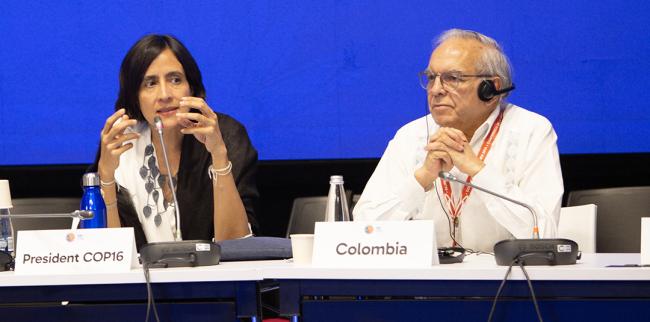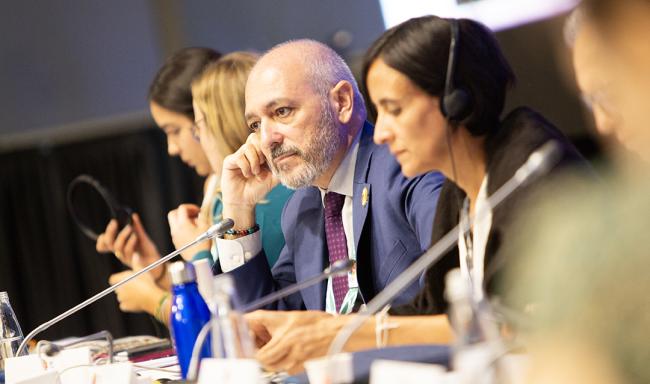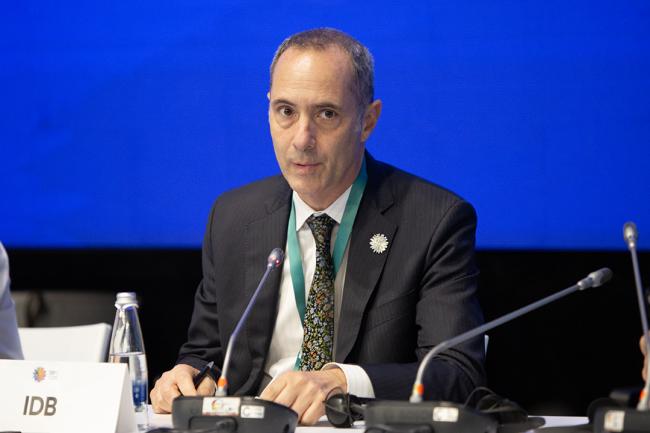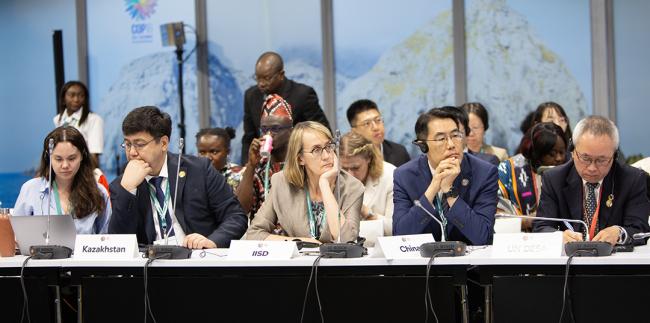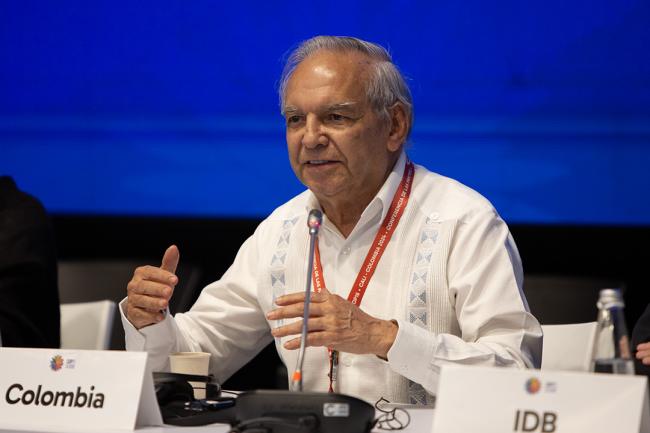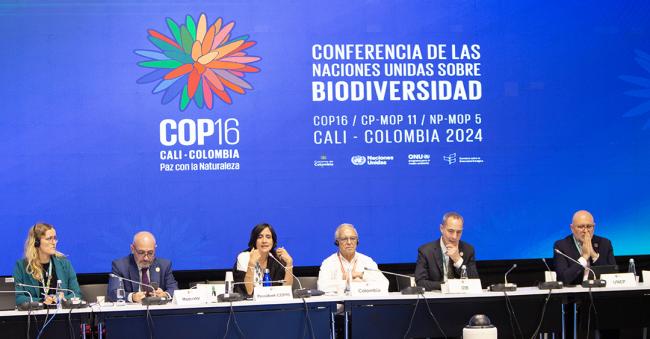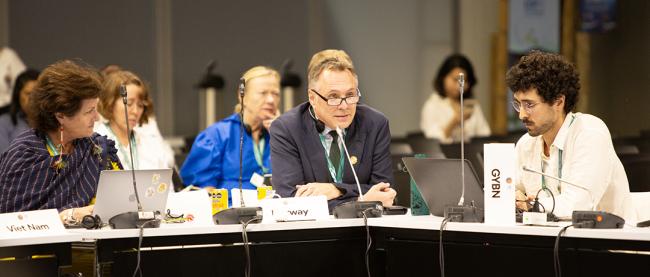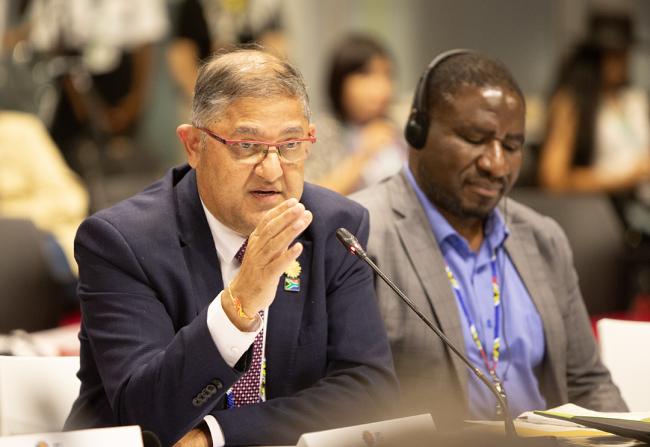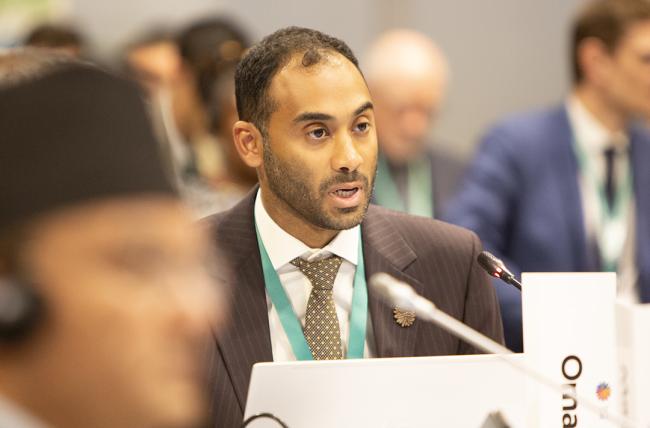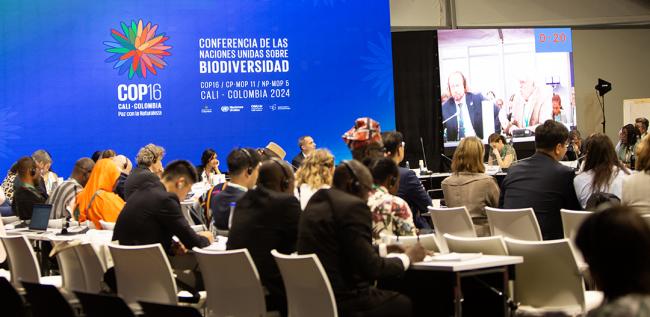About
This High-Level Thematic Ministerial Dialogue brought together Ministers of Finance and Environment and other high-level representatives to address critical challenges related to financing biodiversity. Discussions included the need for: international financial system reform; increased and direct funding from all sources; redirecting financial flows; identifying and reducing harmful subsidies; and innovative financial mechanisms.
Financial gaps pose a key challenge for the equitable and effective implementation of the Kunming-Montreal Global Biodiversity Framework (GBF). Despite progress made since the adoption of the framework, countries still face many challenges that require innovative financial mechanisms and financial system reform.
María Susana Muhamad González, COP 16 President and Minister of Environment and Sustainable Development, Colombia, opened the High-Level Segment on Finance, emphasizing that resource mobilization and financing are crucial elements in negotiations. She recapped key recurrent areas of debate, including overseas development assistance, mobilizing resources from all sources, the need for direct financing to communities, ending harmful subsidies, and reconciling economic development with environmental conservation. She encouraged Parties to brainstorm innovative solutions during the High-Level dialogues.
Moderator Marcos Athias Neto, UN Development Programme (UNDP), urged Parties to avoid lengthy written statements, and engage in real dialogue.
Ricardo Bonilla González, Minister of Finance and Public Credit, Colombia, highlighted three finance-related challenges: income, expenses, and debt. Regarding income, he noted that countries rely on environmentally harmful resources, raising the question of how to develop alternative, stable income sources. On expenses, he pointed out that harmful activities and subsidies are often used to provide social goods. However, developing countries lack sufficient resources, leading them to seek international finance, which leads to the third challenge: debt. He highlighted that even green financing, which often has lower interest rates, still results in debt, emphasizing that transformational change should not rely on the debts of those countries that contribute the least to environmental problems.
Jordan Schwartz, Vice-President, IDB, identified a need to implement financial resources in a way that addresses the concerns and needs of the countries to which they are directed. He highlighted two concrete actions that can be taken: tracking nature finance in multilateral development bank portfolios in a way that is consistent, transparent, and understood by shareholders; and aligning biodiversity-related key performance indicators. He noted that every dollar must deliver measurable impact, and actions are needed to reshape the way the financial system works.
Speakers highlighted the importance of including ministries of finance in discussions regarding financing biodiversity conservation efforts, including implementation of the GBF.
Participants agreed that a global community commitment, including technical and financial support, is critical for supporting implementation of biodiversity plans. The alignment of public and private capital was also discussed by speakers, who noted that both political will and private sector involvement are vital in addressing financial gaps.
Participants called for innovative financial mechanisms, such as green bonds, biodiversity credits, and debt for nature swaps. One highlighted that direct access to finance, especially for Indigenous Peoples, is an urgent issue that needs to be addressed at COP 16.
One observer emphasized that “the financial system needs to be rewired,” including making businesses’ financial disclosures mandatory to advance an accountability system that integrates business and climate, “putting nature on the balance sheet.”
Parties shared examples of how to redirect financial flows and reduce harmful incentives. One observer highlighted the current estimate of USD 1 trillion in harmful subsidies, and the need to identify all sources of such subsidies by 2025.
One party highlighted the need to align the ambitions of the GBF with effective implementation, calling for creative solutions for resource mobilization. They argued for “ecological transformation plans” to reshape current economic models. Multiple delegates supported financial system reform, with one urging a shift to financing people rather than fossil fuels. Another emphasized the importance of historical responsibility, insisting that countries most responsible for environmental impacts should provide support to small developing nations in implementing the GBF. Additionally, another pointed out that the demand for harmful activities often originates outside their borders.
Some speakers argued that the Global Environment Facility has too many responsibilities and that the GBF Fund is not enough to meet the needs of the Framework. Some advocated for the creation of a dedicated global biodiversity fund at COP 16, and for a global benefit-sharing mechanism for digital sequence information.
One observer highlighted that quality of funding is important, lamented the lack of any financial mechanism to ensure direct access to people on the ground, and called for fighting power imbalances and considering allocation of funding in a fair and equitable way.
In her closing remarks, Muhamad noted that the dialogue revolved around two main themes: reform and transformation. She said the financing issues refer not only to funding, but also involve an economic shift – changing the dependency of economies on sectors that are systematically destructive for the environment and ensuring an economy that restores nature.
Organizer: Colombian COP 16 Presidency
Financial and technical support: German Cooperation
Contact: prensa@minambiente.gov.co
For more information: https://www.cbd.int/conferences/2024/cop-16-hls
To receive free coverage of global environmental events delivered to your inbox, subscribe to the ENB Update newsletter.
All ENB photos are free to use with attribution. For the 2024 UN Biodiversity Conference, please use: Photo by IISD/ENB | Angeles Estrada Vigil

